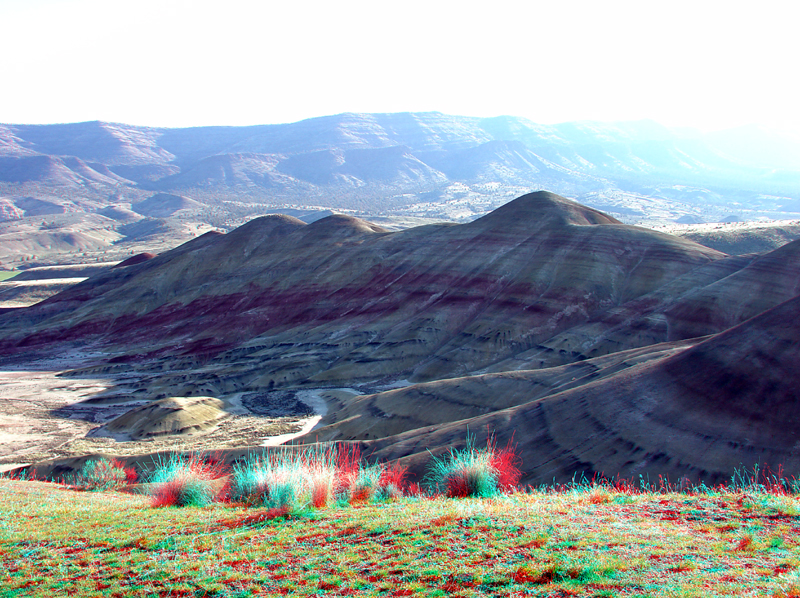| This view from the Painted Hills Overlook Trail shows beds of the John Day Formation gently folded into an anticline.
The gray layers are mudstone, siltstone, and shale formed from sediments
deposited on an ancient river floodplain. The black layers are thin beds
of fossilized or carbonized vegetative matter (lignite) that formed in swamps
on the floodplain. The red layers are ancient soil profiles (laterites)
that formed on floodplain deposits (Bestland and others, 2002; Fremd and others, 1994). Surface weathering relatively quickly
breaks down these rocks into a clay-rich surface coating that easily erodes
during summer flash floods and/or winter storms. The high clay content and
rapid erosion during infrequent storms prevents plants from becoming established
in the badlands areas. Note the examples of native bunch grasses in the
foreground. |

